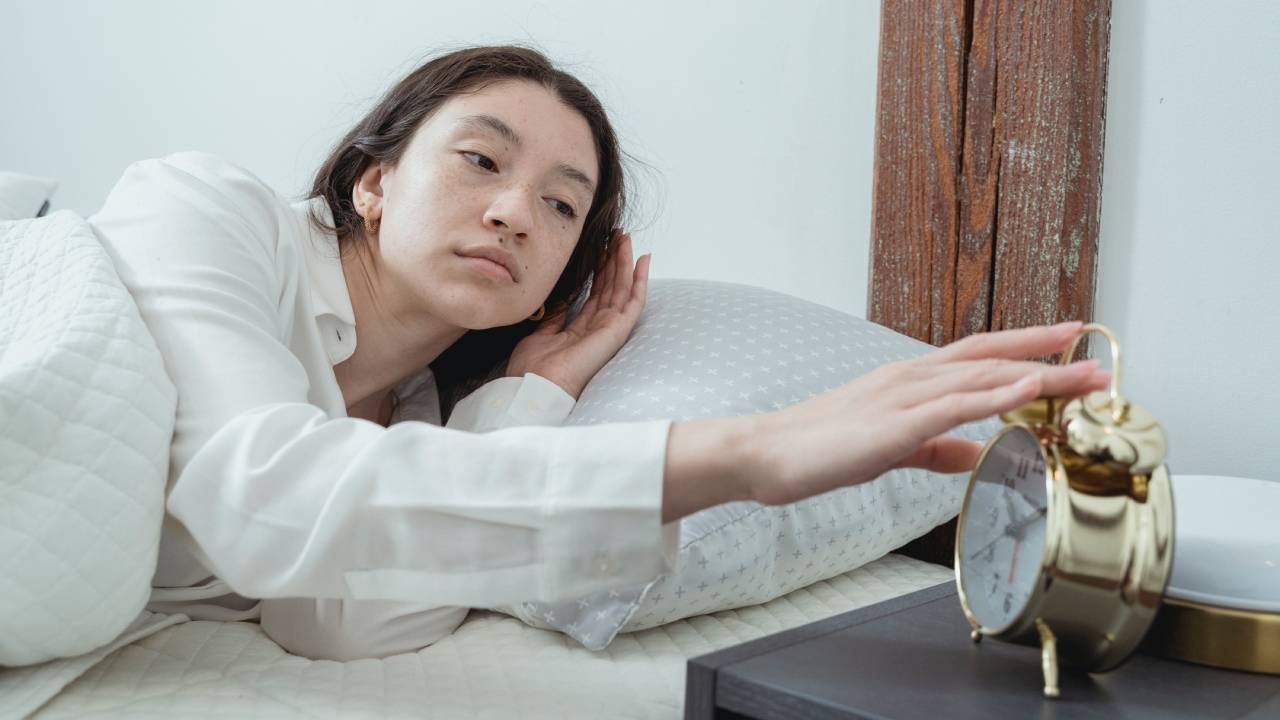Beat the UK clock change with these 5 expert-approved sleep tips
Sleep expert reveals 5 ways to sleep better after the UK clock change


On Sunday 29th October, the clocks will go back in the UK by an hour and will be in GMT until they go forward again at the end of March. This clock change officially welcomes us into the colder months of the year, and the sun will set earlier, typically between 4 and 5pm.
Unlike when the clocks go forward and we lose an hour of sleep, we actually gain an hour when the clocks go back. You might be thinking, ‘why do I need sleep tips when I get an extra hour in bed?!’ While that extra hour is seemingly nothing to worry about, this time change can disrupt your body clock. Coupled with the darker mornings and evenings, it can have a negative effect on your health and wellbeing.
To understand more about this, I spoke to Theresa Schnorbach, sleep scientist and expert from Emma, a leading UK mattress company that ranks highly in our best mattress guide. While discussing sleep issues in autumn, she said “while sleeping for an additional hour might seem like a great thing, it takes a few days for our internal clocks to adjust. What’s more, the clocks ‘falling back’ in autumn also signals the beginning of cold weather and a lack of light that can lead to disrupted sleep and SAD.”
Recommended and approved by Schnorbach, here are five tips to beat the UK clock change and keep your sleep schedule on track during autumn and winter.
1. Resist the temptation to sleep in
The temptation to have a lie in is strong on the weekends, especially when you get an extra hour of sleep. But doing this can cause daylight savings jet lag. It might be tempting to go to bed later and wake up later, but this can disrupt your sleep for longer. The light patterns we experience throughout the day have an effect on your body clock and hormone production, and when this is disrupted, it can cause sleep issues like broken sleep, restlessness and bad sleep quality and quantity. It’s important to keep your sleep schedule the same, meaning you should go to bed and wake up at the same time every day, even during the clock change.
2. Biohack your body with light
According to Schnorbach, “our body clocks are linked to something in the brain called the suprachiasmatic nucleus (SCN). The SCN is sensitive to light and sends signals to the brain which can have major influences on bodily functions, including the release of the sleep-inducing hormone, melatonin. After the clocks go back, our days get shorter and nights get longer, meaning this usual cycle of hormone production is disrupted, leading to poorer sleep quality.” To counteract this disruption, you can regulate your circadian rhythm by ‘biohacking’ your sleep with different kinds of light.
Schnorbach suggests using bright sunlight first thing in the morning to keep you alert during the day and help you fall asleep at night. Other ways to simulate sunlight include investing in the best SAD lamps which use light therapy to combat the symptoms of seasonal affective disorder. Blue light which is emitted by electronic devices should be avoided in the afternoon and evening as they affect melatonin production. Schnorbach also recommends using “red light bulbs around your house in the evening to help prepare your body for sleep. Red light therapy exposure has been found to increase melatonin levels and boost the quality of sleep.”
Get all the latest news, reviews, deals and buying guides on gorgeous tech, home and active products from the T3 experts

3. Think temperature
Temperature in your sleep environment can make a big difference to how you sleep at night. As our bodies need to cool down in order to fall asleep (which is why experts suggest sleeping in a cold room is better for you), turning up the heating in your bedroom can be counterproductive.
“Your heating could actually be wrecking your sleep by making your nose dry out,” says Schnorbach. “Dry air from indoor heating can lead to congestion, higher chances of snoring and breathing patterns that aren’t conducive to a good night’s sleep. Drinking plenty of water will help to keep your nasal passages well lubricated but you can also opt for a humidifier if this is something you struggle with.” Instead of turning to the thermostat, investing in the best bedding can also help regulate your temperature while keeping you warm and avoiding overheating.
4. Get some extra vitamin D
At this time of year, the days feel shorter as it gets darker quicker, and the lack of sunlight can bring a drop in vitamin D levels. “There are several studies that show an association between vitamin D levels and quality and quantity of sleep. Having low levels of vitamin D can increase your daytime sleepiness, decrease the quality of sleep, and has been linked to a higher risk of various sleep disorders,” explains Schnorbach. To get extra vitamin D, Schnorbach suggests a vitamin supplement may help to support better sleep.
5. Lean into seasonal nostalgia
The darker mornings and evenings aren’t all bad! Instead, they bring exciting seasonal events with them, like Halloween, Bonfire Night and Christmas. A recent study by Emma found two thirds of UK adults said nostalgia creates a positive impact on their wellbeing, with many finding solace in reminiscing about past experiences before bedtime. This nostalgia, particularly during the autumn and winter, can “help create a restful and comforting environment, increase your wellbeing and improve your sleep quality.”
Make sure to check out the best Emma deals and sales for low prices on a new sleep set-up.

Beth is Home Editor for T3, looking after style, living and wellness. From the comfiest mattresses to strange things you can cook in an air fryer, Beth covers sleep, smart home, coffee machines, watches, grooming tools, fragrances, gardening and more.
In her spare time, Beth enjoys running, reading, baking and attempting craft projects that will probably end in disaster!